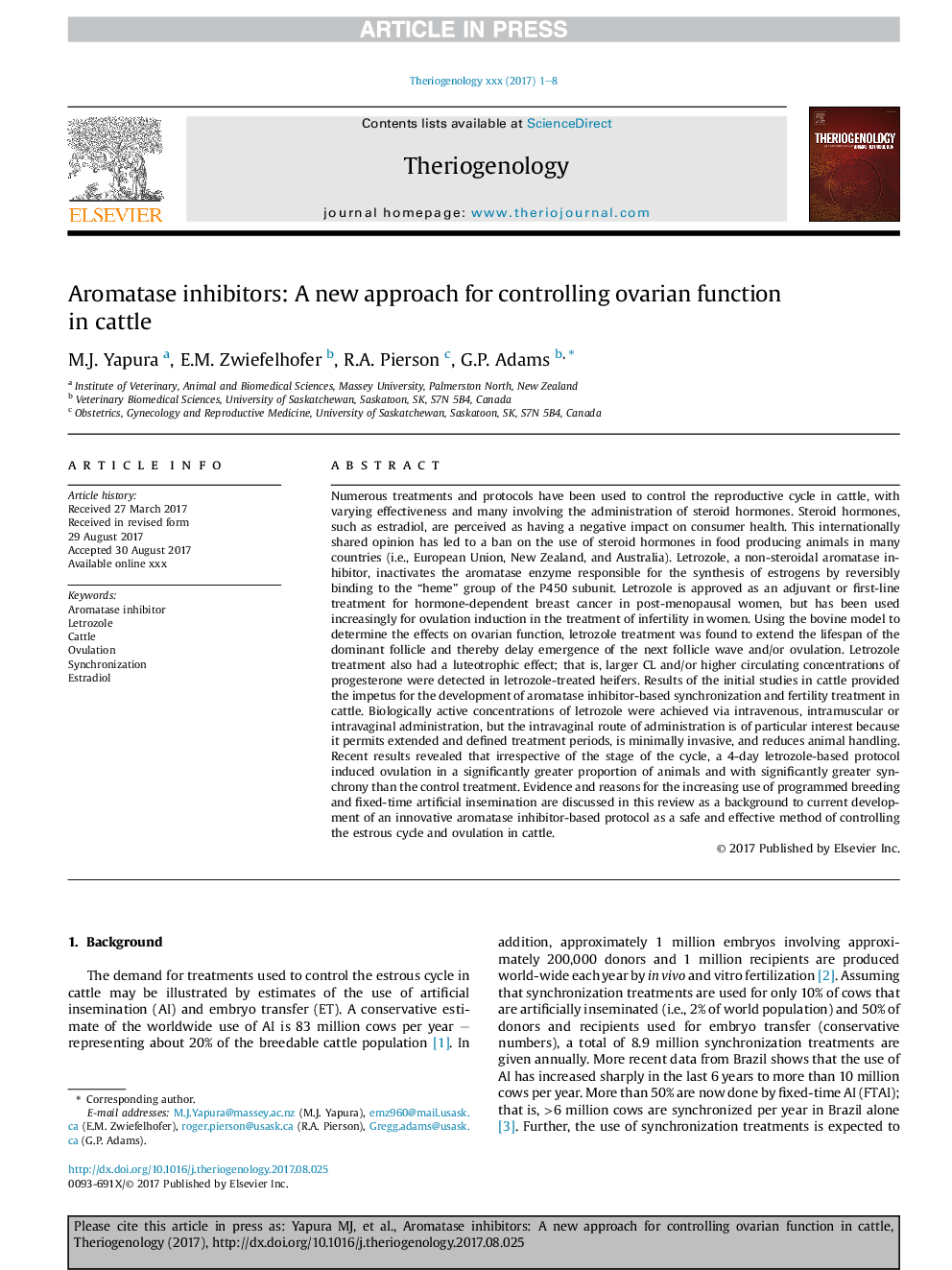| کد مقاله | کد نشریه | سال انتشار | مقاله انگلیسی | نسخه تمام متن |
|---|---|---|---|---|
| 8427218 | 1546057 | 2018 | 8 صفحه PDF | دانلود رایگان |
عنوان انگلیسی مقاله ISI
Aromatase inhibitors: A new approach for controlling ovarian function in cattle
ترجمه فارسی عنوان
مهار کننده های آروماتاز: یک رویکرد جدید برای کنترل عملکرد تخمدان در گاو
دانلود مقاله + سفارش ترجمه
دانلود مقاله ISI انگلیسی
رایگان برای ایرانیان
کلمات کلیدی
مهار کننده آراماتاز، لتروزول، گاو، تخمک گذاری، هماهنگ سازی، اتراستیل،
موضوعات مرتبط
علوم زیستی و بیوفناوری
علوم کشاورزی و بیولوژیک
علوم دامی و جانورشناسی
چکیده انگلیسی
Numerous treatments and protocols have been used to control the reproductive cycle in cattle, with varying effectiveness and many involving the administration of steroid hormones. Steroid hormones, such as estradiol, are perceived as having a negative impact on consumer health. This internationally shared opinion has led to a ban on the use of steroid hormones in food producing animals in many countries (i.e., European Union, New Zealand, and Australia). Letrozole, a non-steroidal aromatase inhibitor, inactivates the aromatase enzyme responsible for the synthesis of estrogens by reversibly binding to the “heme” group of the P450 subunit. Letrozole is approved as an adjuvant or first-line treatment for hormone-dependent breast cancer in post-menopausal women, but has been used increasingly for ovulation induction in the treatment of infertility in women. Using the bovine model to determine the effects on ovarian function, letrozole treatment was found to extend the lifespan of the dominant follicle and thereby delay emergence of the next follicle wave and/or ovulation. Letrozole treatment also had a luteotrophic effect; that is, larger CL and/or higher circulating concentrations of progesterone were detected in letrozole-treated heifers. Results of the initial studies in cattle provided the impetus for the development of aromatase inhibitor-based synchronization and fertility treatment in cattle. Biologically active concentrations of letrozole were achieved via intravenous, intramuscular or intravaginal administration, but the intravaginal route of administration is of particular interest because it permits extended and defined treatment periods, is minimally invasive, and reduces animal handling. Recent results revealed that irrespective of the stage of the cycle, a 4-day letrozole-based protocol induced ovulation in a significantly greater proportion of animals and with significantly greater synchrony than the control treatment. Evidence and reasons for the increasing use of programmed breeding and fixed-time artificial insemination are discussed in this review as a background to current development of an innovative aromatase inhibitor-based protocol as a safe and effective method of controlling the estrous cycle and ovulation in cattle.
ناشر
Database: Elsevier - ScienceDirect (ساینس دایرکت)
Journal: Theriogenology - Volume 112, May 2018, Pages 18-25
Journal: Theriogenology - Volume 112, May 2018, Pages 18-25
نویسندگان
M.J. Yapura, E.M. Zwiefelhofer, R.A. Pierson, G.P. Adams,
